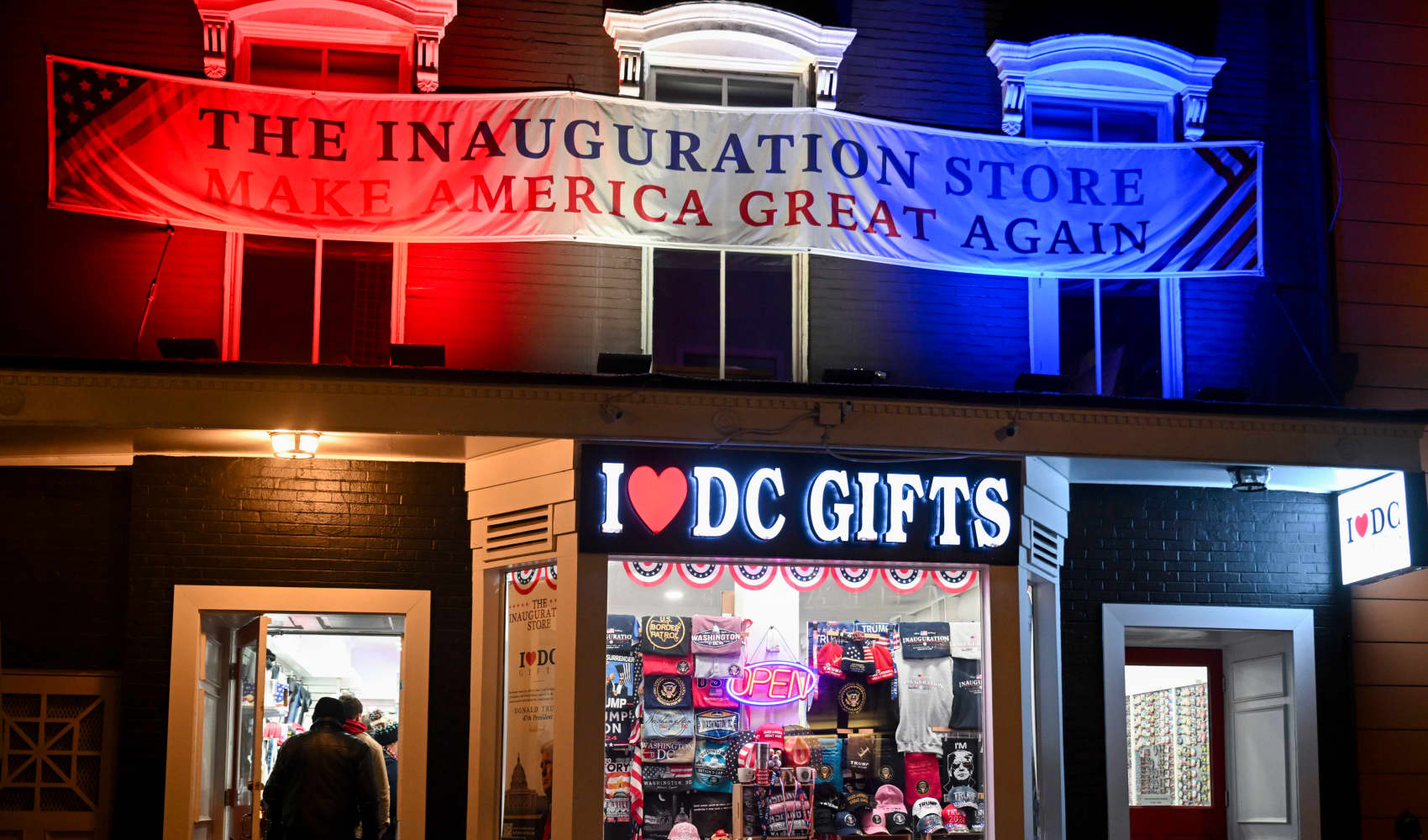
The Japanese flag flutters over the Bank of Japan (BoJ) head office building (bottom) in Tokyo on April 27, 2022.
- The Bank of Japan kept its benchmark interest rate steady at around 0.25% — the highest rate since 2008 — at the conclusion of a two-day meeting Friday.
- The verdict came as the BOJ strives to normalize its monetary policy after a long-held ultra-easy approach, without hurting the country's economy.
The Bank of Japan kept its benchmark interest rate steady at "around 0.25%" — the highest rate since 2008 — at the conclusion of a two-day meeting Friday.
While the decision is in line with Reuters poll estimates, economists largely see another rate hike by end of the year.
The verdict came as the BOJ strives to normalize its monetary policy after a long-held ultra-easy approach, without hurting the country's economy.
Japan's economy has recovered moderately, the central bank said in its official statement, while acknowledging "some weakness has been seen in part."
It noted that the economy will continue to grow at "a pace above its potential growth rate ... as a virtuous cycle from income to spending gradually intensifies."
BOJ said the country's core inflation rate — which strips out fresh food prices — will rise through fiscal year 2025.
Money Report
Japan's fiscal year runs from April 1 to March 31, which means the 2025 fiscal year will end on March 2026.
Yields on the 10-year Japanese government bond were down 0.4 basis points while the yen was nearly flat at 142.52 against the dollar. The Nikkei 225, which was up 2%, maintained the same level after the decision.
Get a weekly recap of the latest San Francisco Bay Area housing news. Sign up for NBC Bay Area’s Housing Deconstructed newsletter.
BOJ Governor Kazuo Ueda said last month that the central bank would continue to raise interest rates if the economy and inflation stayed in line with the central bank's projection.
The tightening stance has set the BOJ apart as an outlier at a time when most of the global central banks are shifting toward easing policy. On Thursday, The U.S. Federal Reserve cut interest rates by 50 basis points to a range of 4.75% to 5.0%.
The BOJ had long maintained interest rates near or below zero, as it sought to spur inflation and boost economic growth with massive monetary stimulus.
The central bank is expected to hike rates in October, and "further dial back monetary support this year despite a poor run of economic data," Stefan Angrick, associate director at Moody's Analytics told CNBC.
"At best, rate hikes will be an added drag on growth. At worst, they could precipitate a broader downturn," he said.
The central bank abandoned negative interest rates in March and raised the key rates to 0.25% in July, as it views the economy was on track to achieving the 2% inflation target.
Japan's core consumer prices index climbed 2.8% year on year, in line with Reuters estimates, versus a 2.7% rise in the previous month. Excluding fresh food and energy costs, the inflation rose 2.0%, versus 1.9% in the previous month.
This was the fourth straight rise in inflation, and provides the BOJ room to continue monetary tightening.
Japan revised down its second-quarter GDP growth to an annualized 2.9% from the previous quarter, a softer economic recovery than the government's initial estimate and missing the 3.2% growth forecast in a Reuters poll.
BOJ's rate decision came one week ahead of the Liberal Democratic Party's leadership election on Sep. 27, where the winner is expected to be the new prime minister from early October.






